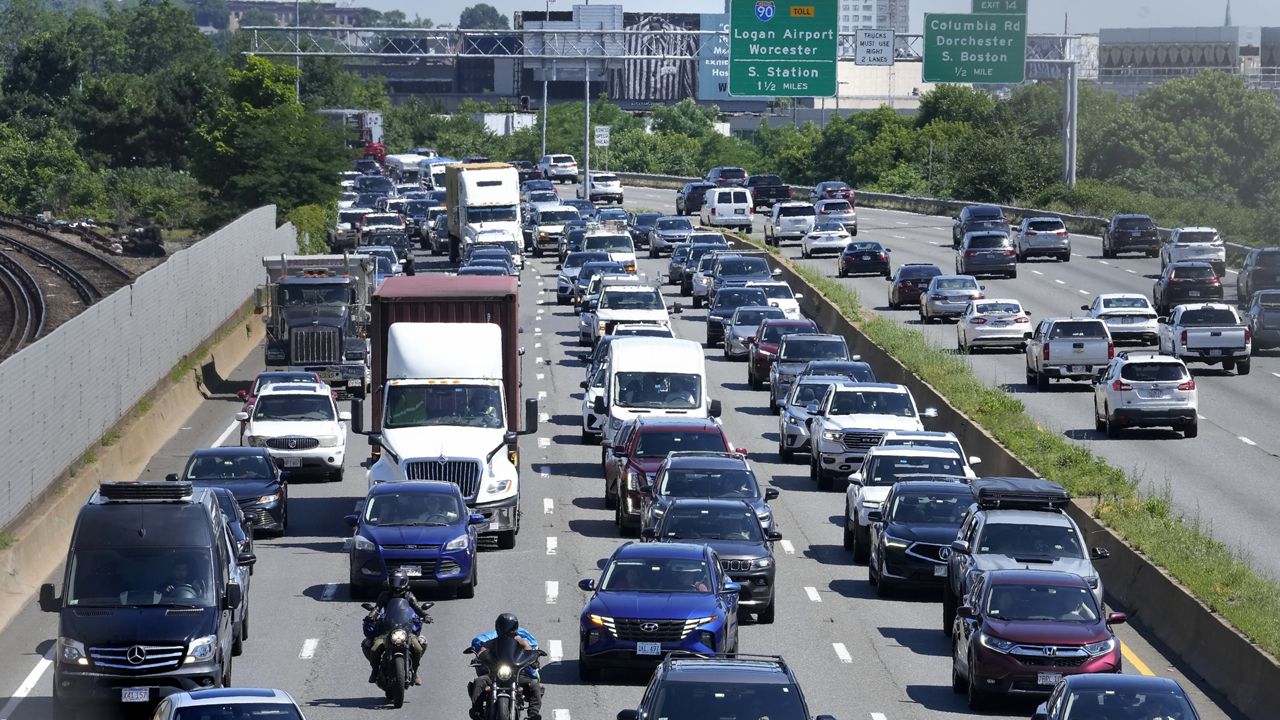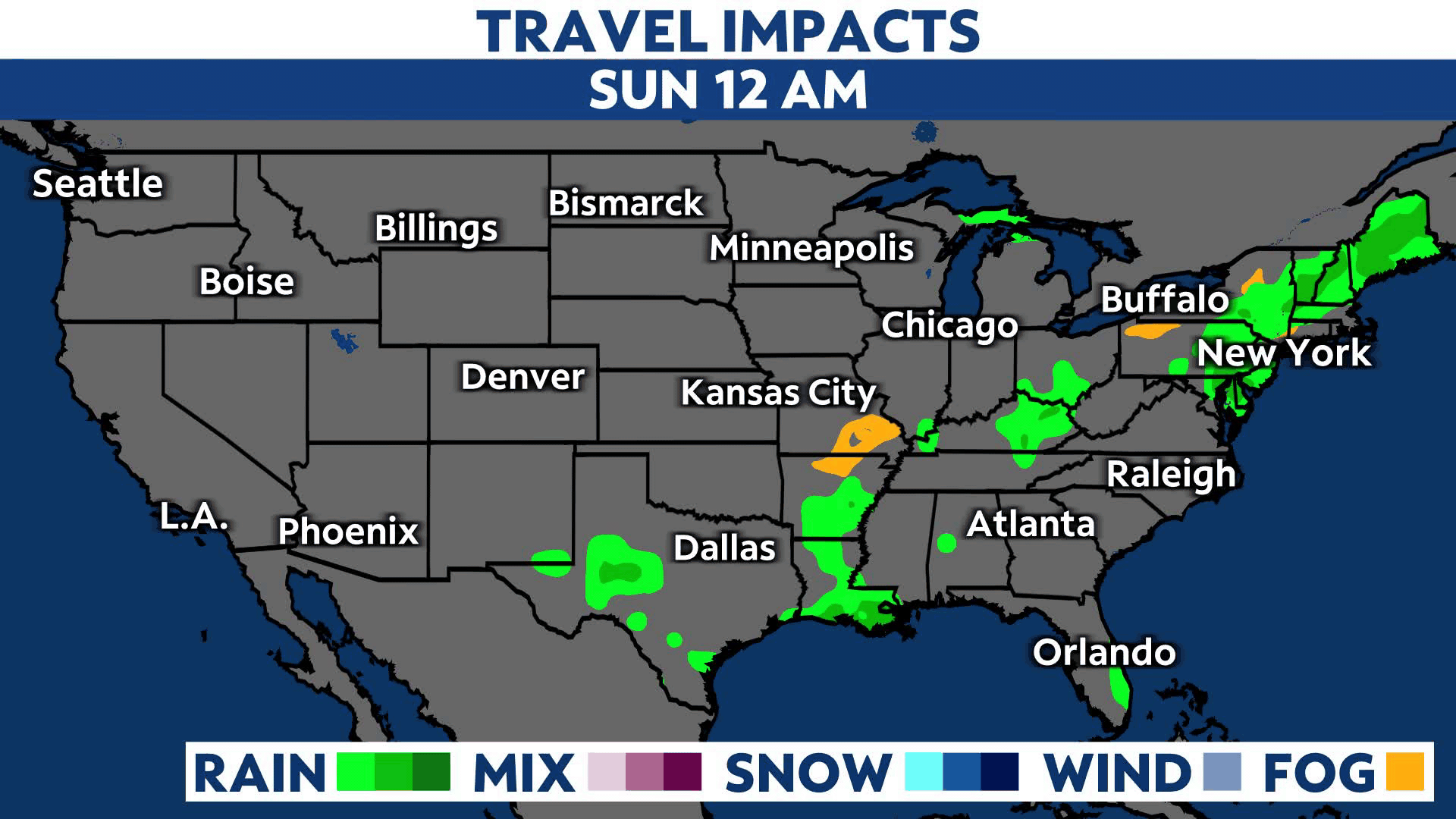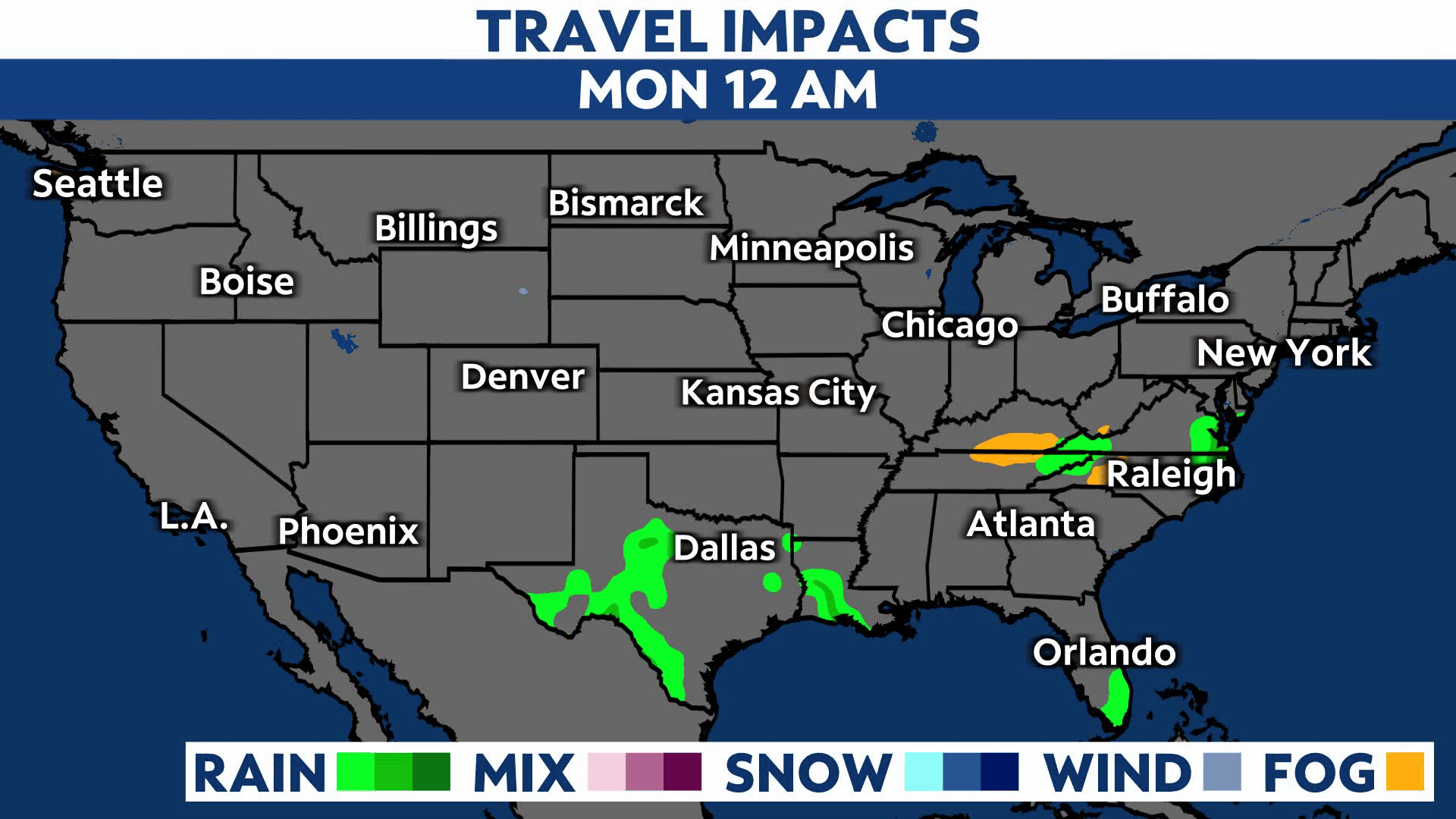Travel
Storms across the Eastern U.S. and Gulf Coast could disrupt Labor Day travel

Labor Day weekend is one of the busiest travel weekends of the year, and the weather could slow you down.
If you’re traveling in the western U.S., it will be dry through Labor Day with no slowdowns. If you’re traveling anywhere else in the country, here’s what you need to know about the forecast this weekend.
Saturday
A cold front will be swinging toward the East Coast, bringing showers and storms on Saturday.
Severe storms could produce heavy rainfall with gusty winds from the central Appalachians into the Northeast on Saturday. Parts of the Ohio Valley and Great Lakes will also see potential for strong storms.
Along with the potential for some strong winds within storms, locally heavy rainfall is possible across parts of the Eastern U.S. Rainfall totals could exceed an inch locally from Kentucky northward to New England.
A disturbance in the northern Gulf of Mexico will also bring some heavy rainfall to the central Gulf Coast. For I-10 travelers, locally heavy rainfall could cause some flooding issues stretching from coastal Texas across southern Louisiana and southern Mississippi.
Sunday
The cold front bringing storms on Saturday and Saturday night will continue to push toward the coast on Sunday. It will bring a low-end threat for severe storms stretching from the Mid-Atlantic to New England.

Heavy rain and gusty winds are possible within storms through Sunday morning and Sunday afternoon, especially along the I-95 corridor. Rainfall totals around this area could climb up to an inch, with the highest totals in North Carolina.
The disturbance in the northwestern Gulf of Mexico will continue to bring heavy rainfall to parts of the Gulf Coast and across Texas, so any travel in those areas could be soggy.
Monday
Rain and storm coverage on Labor Day will be limited to the South and Southeast, with parts of Texas seeing the best potential for heavy rainfall, especially central and west Texas.

The cold front that moves through the eastern 2/3 of the country will have pushed through by then, allowing high pressure to build in with cooler and drier weather across the Central U.S. and Northeast.
Aside from Texas, most areas will see minimal impacts from weather traveling around the country.
Our team of meteorologists dives deep into the science of weather and breaks down timely weather data and information. To view more weather and climate stories, check out our weather blogs section.








